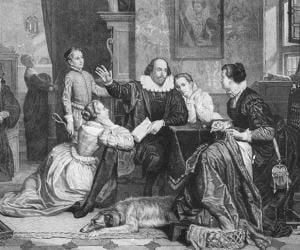Born In: Stratford-upon-Avon
Hamnet Shakespeare
Hamnet Shakespeare was the son of the English poet, playwright, and actor William Shakespeare. He was the fraternal twin of Shakespeare's youngest daughter, Judith Shakespeare. Hamnet passed away at the age of 11, and many scholars have since argued that his death might have prompted William Shakespeare to write some of his best-known tragedies, including ‘Romeo and Juliet,’ ‘The Tragedy of Julius Caesar,’ and ‘The Tragedy of Hamlet, Prince of Denmark.’ From the 18th to the early 20th century, scholars and critics, such as Dover Wilson, Edward Dowden, and Samuel Taylor Coleridge pondered upon the relation between Hamnet's demise and Shakespeare's works. However, many other scholars have argued that some of Shakespeare's most cheerful works were written after Hamnet’s death. Eventually, critics stopped connecting the works of authors with the events occurring in their personal lives. However, interpretations of Shakespeare's works with regard to Hamnet's demise have begun to re-emerge, especially after the formalist movement known as ‘New Criticism’ lost significance.









